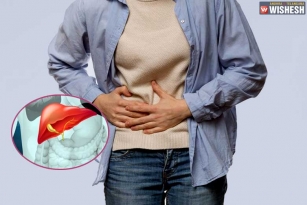
(Image source from: Freepik.com)
Signs that tell you are Nutrient Deficient:- We all know that our bodies need vitamins and minerals to stay healthy. But how do you know when your body's needs aren't being met?
“There are many telltale signs of vitamin and mineral deficiencies,” says Dr. Patricia Graham, an internist at RUSH University Medical Center. However, the good news is that symptoms often improve or disappear if you take steps to correct the deficiency.
Here, Graham walks you through six warning scenarios and how to address any deficiencies identified.
1. Severe hair loss
Each person loses around 100 strands of hair every day, but if you suddenly spot a clump of hair on the pillow or in the shower, it's worth seeing your doctor. This could be a sign of a larger problem, such as low iron levels, which affect energy, or a thyroid disorder, which can cause sudden weight gain or loss.
“Always check,” says Graham. We will do a blood test to check your iron levels.
Low iron levels can cause you to feel constantly cold, have headaches, and feel dizzy frequently. When you have thyroid disease, your muscles become weak, your joints hurt, and your skin becomes dry and pale.
Improvement of iron deficiency
The good news is that iron deficiency can be corrected with supplements. The recommended daily allowance (RDA) is 8 mg for men and 18 mg for women over 18 years of age.
“Healing may take three to four months, but it is possible,” Graham said. Also include iron-rich foods like spinach and beans in your diet.
2. Burning sensation in the foot or tongue
“If you experience something like this, you should definitely raise the alarm,” says Graham. Your doctor may order a blood test to check your B12 levels. You may have balance problems, constipation, dry skin, etc.
B12 plays an important role in health by producing hemoglobin, a part of red blood cells that helps the body's cells receive life-giving oxygen. This vitamin is essential for the proper functioning of various systems, such as the digestive system.
In addition, vitamin B12 deficiency can lead to mild cognitive impairment. Therefore, see your doctor if you notice any changes in your memory, thinking, or behavior. Over time, B12 deficiency can cause permanent damage to the nervous system, spreading from the spine to the brain.
Vegetarians take special precautions: A vegetarian diet excludes most B12-rich foods (meat and dairy), which increases the risk of deficiency. However, you can also meet your daily requirements with almond milk, nutritional yeast, fortified soy milk or coconut milk.
“It can take a long time to develop a B12 deficiency—up to three years—before the liver can use this important vitamin,” he says. "But over time, B12 deficiency can seriously damage vital functions and must be treated."
Increases B12 levels
Taking B12 supplements can restore and maintain adequate B12 levels. "The body doesn't make B12," Graham explains.
Healthy adults should consume 2.4 mg of vitamin B12 per day. Some people, especially those with an autoimmune disease like pernicious anemia, need to take B12 in a syringe to deliver it directly to the stomach cells.
Calcium regulates heart rhythm. Its deficiency can lead to cardiac arrhythmias or irregular heartbeats, and even chest pain.
3. Wounds heal slowly.
If you brush and floss regularly and your gums are red, swollen, and bleeding, you may need to increase your vitamin C intake. Another symptom may be that you bruise easily.
“Vitamin C is like cement. It holds cells together and heals wounds,” says Graham.
In fact, vitamin C has many properties, including anti-inflammatory and antioxidant effects that help control cell damage.
Vitamin C increases
First, if you smoke, take steps to quit. In addition to its many negative health effects, smoking limits the body's absorption of vitamin C.
Also, eat more fruits and vegetables that are high in vitamin C, including kiwis, red peppers, and of course, oranges. Healthy adults should consume 60 milligrams of vitamin C per day.
4. Bone pain
If you have bone pain, you may have a vitamin D deficiency.
“If you have the same growing pains as an adult that you did as a child, talk to your doctor,” says Graham.
Treatment of vitamin D deficiency
For adults, the recommended daily dose of vitamin D is 600 IU (800 IU for adults 71 years and older). Foods rich in vitamin D include salmon, herring, sardines, canned tuna, oysters, shrimp and mushrooms. Or choose milk, soy milk, orange juice, oatmeal and vitamin D-fortified cereal.
You can still meet your daily requirement by going out in the sun for 10 minutes without sunscreen (if you're going to be outside for longer, be sure to apply sunscreen to protect yourself from the harmful rays. UV protection, please paint).
If you have severe vitamin D deficiency, your doctor may prescribe vitamin D supplements.
Unlike other vitamins and minerals, vitamin D levels are usually tested in the blood during annual physical examinations, making it easy to detect a deficiency.
5. Arrhythmia
“Calcium regulates heart rate,” says Graham. Therefore, a deficiency can cause cardiac arrhythmias, cardiac arrhythmias and even chest pain.
Other symptoms that may indicate a calcium deficiency:
Rotation around the face and mouth. Calcium works on your muscles so they can contract properly.
Muscle Cramps Without enough calcium, your muscles cannot fully relax.
Failure, fracture Calcium is necessary for strong bones. Otherwise, bone loss or osteoporosis can occur, which in turn leads to more fractures.
This way you get more calcium
Adults should consume 1000 mg of calcium daily from food sources and supplements.
Calcium-rich foods include salmon and sardines (both are good sources of heart-healthy omega-3 fatty acids), broccoli, and bok choy.
And of course dairy products like fat-free milk and fat-free or low-fat yogurt. Try replacing one sugary drink (soda, juice, brewed coffee, etc.) with an 8-ounce drink each day. a glass of milk. Then keep some yogurt in the fridge for a snack at home or at work. You can also make homemade smoothies with milk and yogurt and add fresh or frozen berries.
6. Night vision deteriorates.
If you don't get enough vitamin A, your night vision and visual acuity may deteriorate over time.
"Vitamin A deficiency causes the cornea to dry out, which can lead to blurred vision and vision loss," says Graham. "It can also damage the retina."
If you notice a change in your vision, see an ophthalmologist who will examine the back of your eye.
Result "A".
In addition to annual checkups with your primary care doctor, you should also visit your eye doctor once a year—and don't hesitate to visit sooner if you have blurred vision or night vision problems.
Graham also recommends foods rich in vitamin A, including milk, eggs, mangoes, blackberries, sweet potatoes and apricots. "You can take supplements if your diet isn't meeting your needs," she says. 900 mcg of vitamin A per day if you are a man, 700 mcg if you are a woman.
Simple blood tests can be used to determine your vitamin and mineral levels. However, most of these tests are not usually included in the routine blood work performed during the annual physical exam.
"It's important to share your concerns with your health care provider," says Graham. “This allows us to diagnose and solve the problem at an early stage. These errors are often very easy to deal with, so identifying them is critical."













